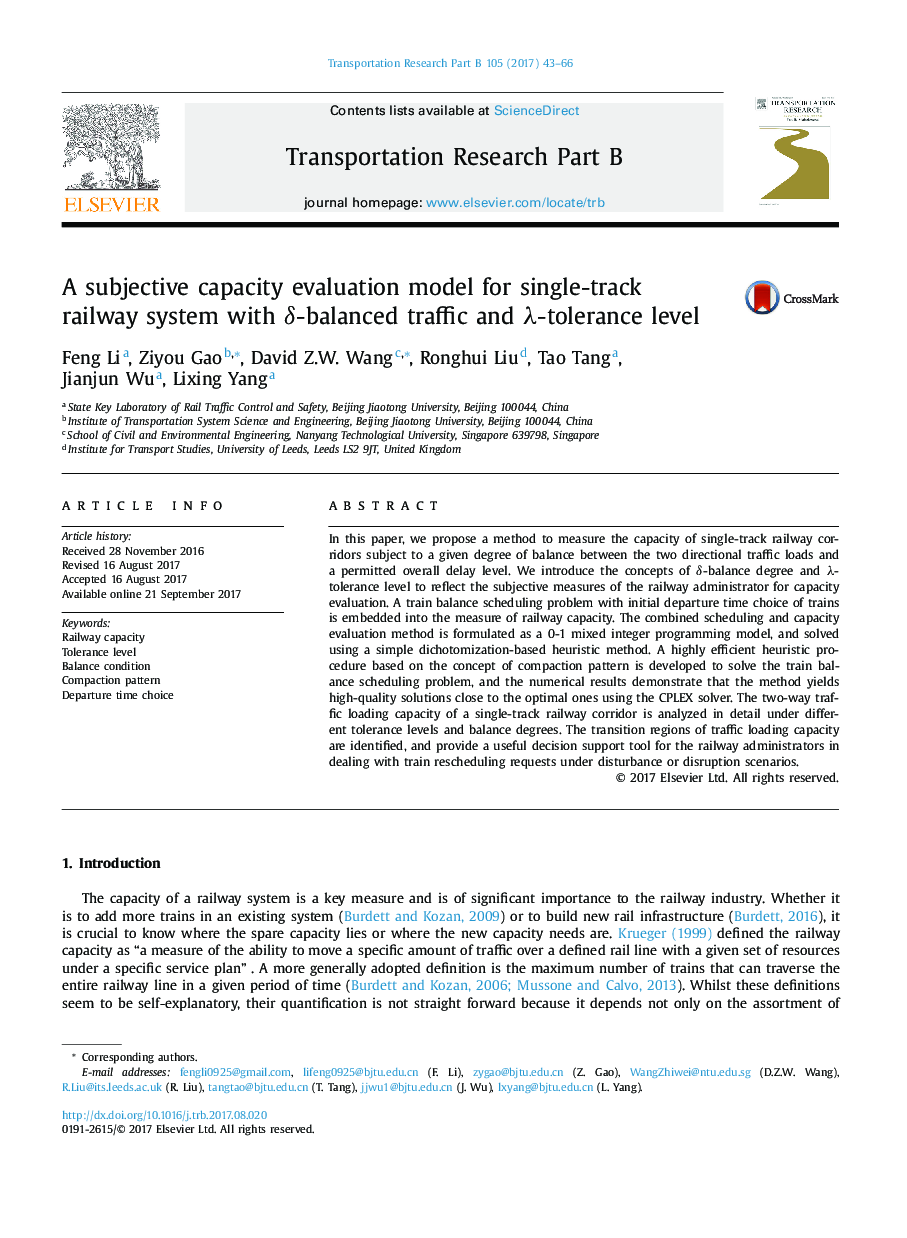| Article ID | Journal | Published Year | Pages | File Type |
|---|---|---|---|---|
| 5126910 | Transportation Research Part B: Methodological | 2017 | 24 Pages |
â¢The concepts of a δ-balance degree and a λ-tolerance level are introduced to reflect the subjective measure of the railway administrator for capacity evaluation.â¢A train balance scheduling problem with initial departure time choice of trains is embedded into the measure of railway capacity.â¢A highly efficient heuristic procedure based on the concept of compaction distribution is developed to solve the train balance scheduling problem.â¢The two-way traffic loading capacity of a single-track railway corridor is analyzed in detail under different tolerance levels and balance degrees.â¢The transition regions of traffic loading capacity are identified.
In this paper, we propose a method to measure the capacity of single-track railway corridors subject to a given degree of balance between the two directional traffic loads and a permitted overall delay level. We introduce the concepts of δ-balance degree and λ-tolerance level to reflect the subjective measures of the railway administrator for capacity evaluation. A train balance scheduling problem with initial departure time choice of trains is embedded into the measure of railway capacity. The combined scheduling and capacity evaluation method is formulated as a 0-1 mixed integer programming model, and solved using a simple dichotomization-based heuristic method. A highly efficient heuristic procedure based on the concept of compaction pattern is developed to solve the train balance scheduling problem, and the numerical results demonstrate that the method yields high-quality solutions close to the optimal ones using the CPLEX solver. The two-way traffic loading capacity of a single-track railway corridor is analyzed in detail under different tolerance levels and balance degrees. The transition regions of traffic loading capacity are identified, and provide a useful decision support tool for the railway administrators in dealing with train rescheduling requests under disturbance or disruption scenarios.
